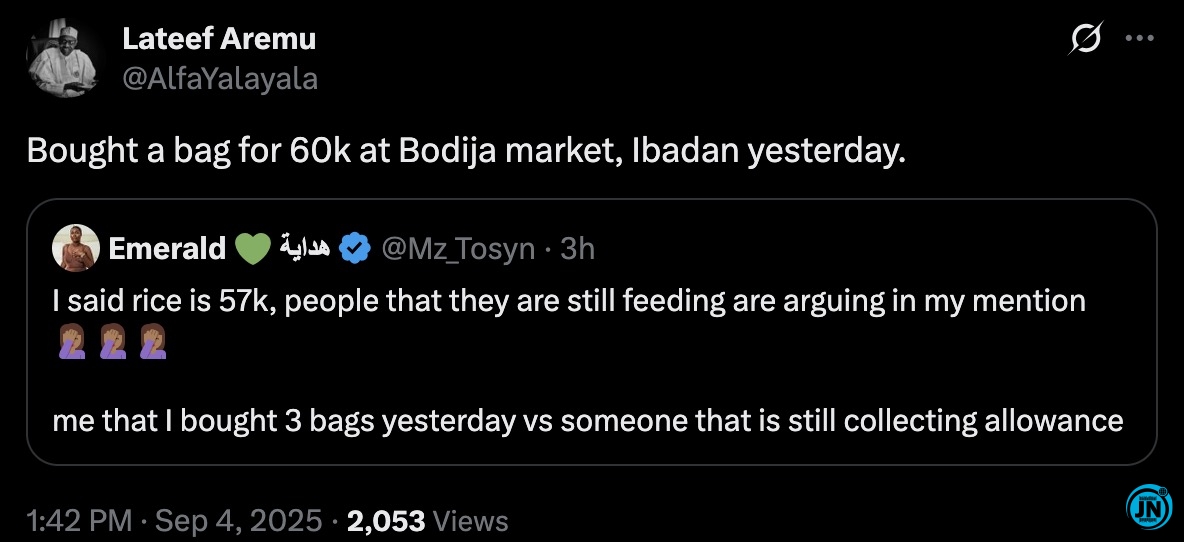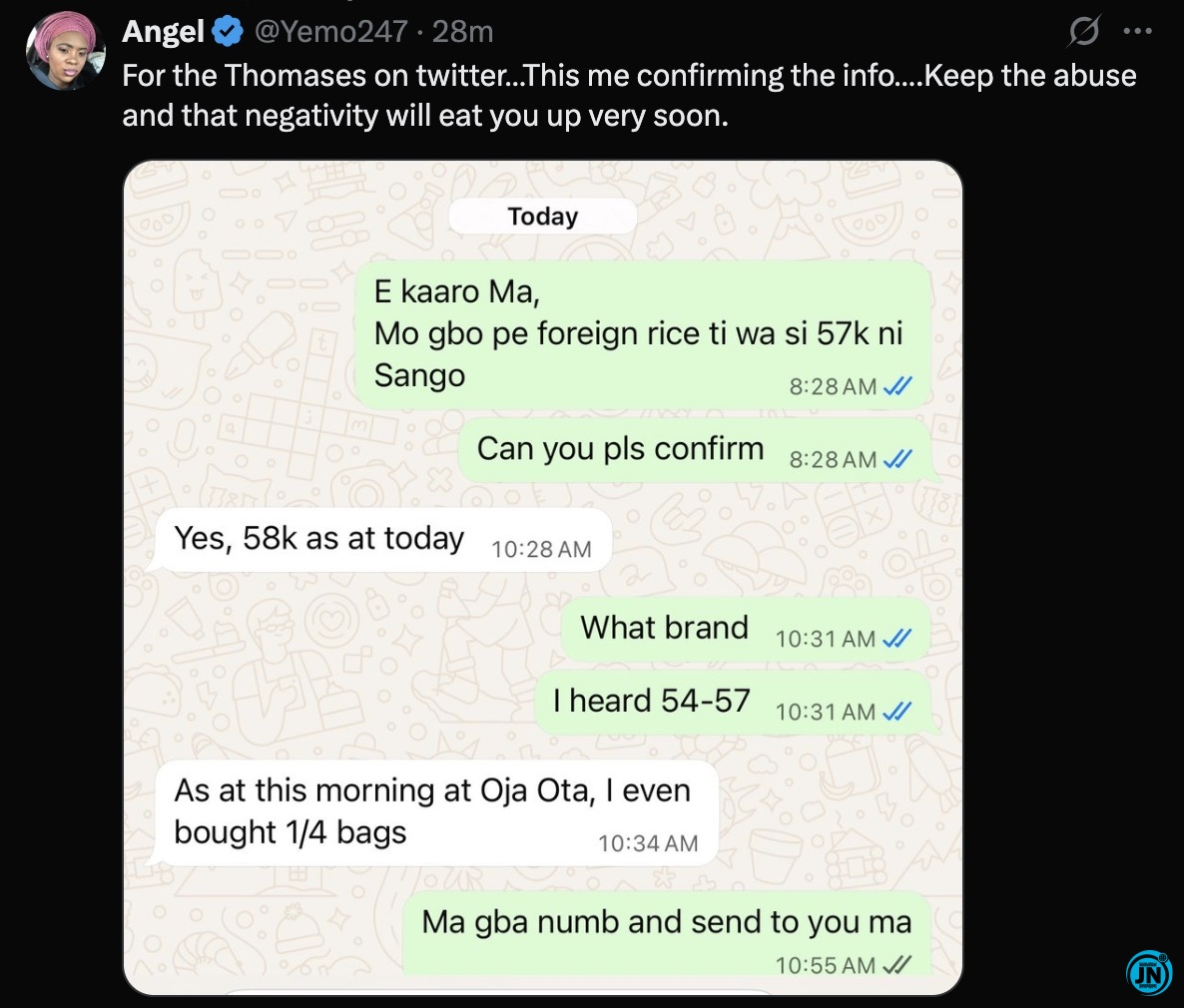Social media spaces across Nigeria have become highly charged with heated debates and contrasting opinions following widespread reports of a notable decline in the cost of imported rice in several major Nigerian markets.
According to market surveys conducted on Thursday morning in places such as the popular Sango Ota market in Ogun State and other large trading hubs across Lagos, Abuja, and Kano, the price of a 50kg bag of imported rice—which had previously been sold within the range of ₦85,000 to ₦90,000—has now dropped significantly, with many traders confirming current prices between ₦56,000 and ₦62,000. For many households, this represents one of the first notable price reductions in staple food items since the surge of inflation that hit the nation in the past year.
The development quickly spread across social media platforms and sparked jubilation among some political supporters, particularly those allied with President Bola Ahmed Tinubu. They hailed the drop in price as proof that the administration’s promises to tackle inflation and stabilize food prices are beginning to yield results. Many of them described it as a positive sign that Nigeria’s economy could gradually recover from months of hardship and rising costs of living.
One user on X (formerly Twitter), @UnclePamilerin, expressed his excitement in a celebratory tone, writing: “Rice prices are finally dropping, minimum wage can buy a bag now. Step by step, we’re getting there. Nigeria will work in our lifetime.” His post quickly gained traction, drawing both agreement and criticism from thousands of Nigerians online.

Another excited citizen, @Mz_Tosyn, took to her handle to share her experience with purchasing food items at the reduced price. She wrote: “I said rice is 57k, people that they are still feeding are arguing in my mention 🤦🏾♀️. Me that I bought 3 bags yesterday vs someone that is still collecting allowance.” She argued that critics doubting the news were either uninformed or intentionally ignoring the reality on ground. Her statement further fueled conversations online, with some praising her optimism and others dismissing it as insensitivity to the broader economic situation.


While jubilation spread among APC supporters and pro-government commentators, critics quickly countered the celebration, labeling it as misplaced. They argued that although rice prices may have dropped, the current cost is still disproportionately high when compared to past administrations where rice and other staple foods were significantly more affordable. Many Nigerians also pointed out that the reduction in rice prices alone does not equate to economic relief, especially as costs of transportation, electricity, cooking gas, and other essentials continue to soar.
Critics ridicule celebration over rice price drop
X user @Uptownoflagos criticized the celebrations sharply, writing: “You’re celebrating that minimum wage for a month can now buy a bag of rice? Whereas 10 years ago, minimum wage could buy 3 bags of rice, transport, feed and even leave 5% for savings. Are we playing in this country?” His comment captured the frustration of many Nigerians who feel that the bigger picture of economic decline is being ignored.
Similarly, @PDPRepublic mocked those praising the administration, stating: “APC influencers trying to convince Nigerians that Tinubu is doing well. 🤡.” The comment implied that pro-government voices were being used to paint a false image of economic improvement.
Another user, @_Kamor, highlighted the hidden costs that many celebrants overlooked, questioning: “So…. boil rice in cold water and eat?!? How much is propane? How much is electricity fee? Tomato? Oil? How much is TP to work?” His statement underscored the fact that food prices cannot be considered in isolation from the broader rising expenses in everyday living.
Echoing the frustration, Mista_Sean remarked: “Youths like this are the reason the political class will always have their ways with corruption and bad leadership.” He argued that misplaced celebrations of minor reliefs serve to distract the public from holding leaders accountable for systemic failures.
Similarly, @smiling_dictato added a scathing critique, saying: “This guy is a big fool, not talking about the stupid taxes being imposed on us every two days. Yehyeh minimum wage can buy a bag of rice now, because na only bag of rice you go chop for the month.” The sarcastic remark pointed to the fact that food affordability cannot be seen as the sole determinant of a working economy when other burdens such as taxes, tariffs, and unemployment persist.
This ongoing debate reflects the sharp divide among Nigerians over Tinubu’s economic policies. While some citizens see the reduction in rice prices as a glimmer of hope and a step toward recovery, others insist it is far too little to celebrate in the face of persistent hardship. The clash of opinions highlights the deep economic frustration across the country, where millions continue to grapple with high costs of food, energy, healthcare, transportation, and housing, even as minor reductions in staple items bring temporary relief to a few.